UNISIM was created in 1996 by a partnership between Petrobras, UNICAMP and FAPESP, with an agreement between the University and the companies for technological innovation.
In its 26th years of existence, UNISIM has as the main production indicators, the following achievements:
- Human Resources Training: 35 doctoral students, 100 MSc students, 73 undergraduate students, 20 specialization students, +100 graduate students as interns attached to the oil area or software development. Many of these students, researchers and collaborators are working today in the oil industry for different companies such as Petrobras, Shell, Equinor, Repsol-Sinopec, CMG, Schlumberger, Baker, GeoQuest, Halliburton, among other companies and universities.
- Publications: 204 journal articles, 393 articles in conferences;
- Research projects: 64 funded projects, totaling more than US$ 25 million;
- Projects related to research grants: 161 projects totaling more than USD$ 2,5 million, (In addition to the grants awarded by funding agencies and CEPETRO to the postgrad course of Petroleum Sciences and Engineering);
- Software: Development of two programs to enhance the applicability of the methodologies proposed by the group which are related to development and management of oil reservoir integrated with commercial reservoir simulators: SEPIA, MERO, UNIPAR, STEP. Reservoir Simulation and Management Website;
- 1 ANP Award, 12 Awards at the Student Paper Contest, 1 award for Academic Recognition and 1 Young Professional Award.
During all these years, the technical-scientific achievements of UNISIM are due to the collaboration of several professors from UNICAMP and partner Universities, UNISIM researchers, students and computer science team, as well as technical and administrative support of the Center for Energy and Petroleum Studies (CEPETRO), the Petroleum Engineering Division (DEP) of the Department of Energy (DE), the School of Mechanical Engineering (FEM) and UNICAMP.
It is also important to mention the contribution of Petrobras through meetings, technical discussions, reports and publications, besides the opportunity to connect with the many challenges associated with the research areas of the group. The importance of Petrobras also comes from the confidence on the group, demonstrated by the continued and increasing financial support since 1996, being the main sponsor of the group. Other important contributions to highlight are from FINEP, CNPq, FAPESP, CAPES and ANP.






